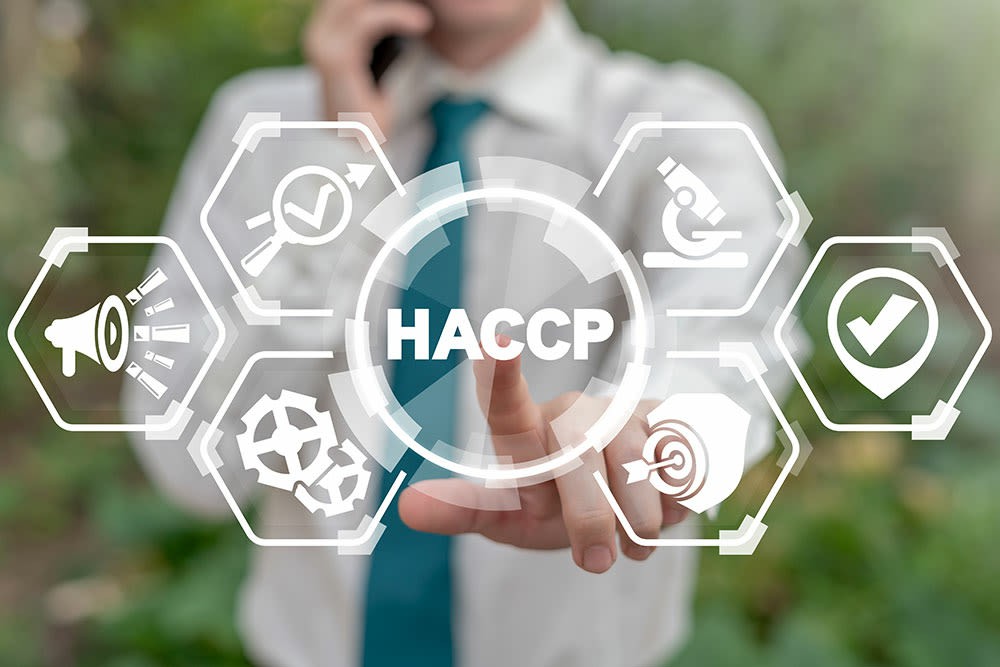HACCP Certification: Your Essential Guide to Food Safety Compliance in Dublin, Cork, Galway, and Beyond
In the food industry, ensuring safety and compliance is paramount. One of the most critical frameworks for achieving this is Hazard Analysis Critical Control Point (HACCP) training. In Ireland, including key cities like Dublin, Cork, Galway, Limerick, Waterford, and Belfast, HACCP training is not just good practice – it's a legal requirement for food businesses. This comprehensive guide will explain why HACCP training is essential, how it integrates with Irish and EU food safety laws, and the steps needed to achieve certification.
What is HACCP? Understanding the Core Principles of Food Safety
HACCP is a systematic approach to food safety that identifies, evaluates, and controls hazards that are significant for food safety. The seven principles of HACCP include:
- Conduct a hazard analysis - Identify potential hazards that could occur in the food processes.
- Determine critical control points (CCPs) - Identify points in the process where significant hazards can be controlled or eliminated.
- Establish critical limits - Set maximum or minimum limits (e.g., temperature, time) to ensure each CCP is under control.
- Establish monitoring procedures - Implement a system to monitor control measures at CCPs.
- Establish corrective actions - Define actions to be taken when monitoring indicates that a CCP is not under control.
- Establish verification procedures - Confirm that the HACCP system is working effectively through validation and audits.
- Establish record-keeping and documentation procedures - Maintain documentation of all activities related to the HACCP plan.
The Business Benefits of HACCP Training and Certification in Ireland
Investing in HACCP training yields numerous benefits for food businesses:
- Legal Compliance: HACCP training ensures that your business complies with Irish and EU food safety regulations, reducing the risk of legal penalties.
- Prevention of Food Contamination: With HACCP principles in place, businesses can mitigate risks associated with foodborne pathogens.
- Enhanced Reputation: Achieving HACCP certification builds trust with consumers and clients, showing your commitment to food safety.
- Operational Efficiency: Implementing systematic control measures increases operational efficiency and reduces food waste.
How to Get HACCP Certified: A Step-by-Step Guide for Food Businesses
The process of obtaining HACCP certification involves several steps:
- Conduct a Self-Assessment: Evaluate your current food safety practices against HACCP principles.
- Enroll in a HACCP Training Course: Consider online HACCP training or in-person courses offered across Dublin, Cork, Galway, and more.
- Develop a HACCP Plan: Create a detailed plan outlining your processes, CCPs, and monitoring mechanisms.
- Implement the Plan: Train staff on the new procedures and ensure proper execution of the HACCP plan.
- Conduct Regular Audits: Perform audits to ensure compliance and adjust your plan as needed.
Comparing Online vs. In-Person HACCP Training Courses
Both online and in-person HACCP training have their merits. Online HACCP training provides flexibility, allowing participants to learn at their own pace and revisit materials as needed. On the other hand, in-person training fosters direct interaction with instructors and peer engagement, which can enhance understanding and retention.
Common HACCP Violations and How to Prevent Them
Avoiding common pitfalls in HACCP compliance is crucial:
- Inadequate Training: Ensure all staff are well-trained in HACCP principles to support the implementation.
- Failure to Monitor: Establish a routine of regular monitoring of CCPs to maintain compliance.
- Poor Documentation: Maintain thorough records of all HACCP activities to facilitate audits and verification.
How HACCP Compliance Enhances Business Reputation and Consumer Confidence
Consumer awareness of food safety is at an all-time high. HACCP certification not only demonstrates that your business adheres to rigorous safety standards but also helps in cultivating consumer trust. A reputation for high food safety standards can differentiate your business in a competitive market.
How to Conduct a HACCP Audit and Maintain Ongoing Compliance
Regular audits are essential for ensuring ongoing compliance:
- Review the HACCP Plan: Ensure the plan is up-to-date and reflective of current practices.
- Conduct Spot Checks: Perform random inspections to verify adherence to the plan.
- Seek External Auditors: Consider hiring external auditors to provide an unbiased review of your practices.
Conclusion & Call to Action
This guide has highlighted the vital role of HACCP training in maintaining food safety compliance across Ireland. In a landscape where food safety is under constant scrutiny, investing in HACCP training not only fulfills a legal obligation but also protects your business and its reputation. Take the next step today by enrolling in our HACCP Training Course to ensure your business meets all necessary food safety standards.
For direct inquiries or to learn more, contact us at [email protected].



 349,500 Offered Certificates
349,500 Offered Certificates
 24/7 Online Training
24/7 Online Training
 Money Back Guarantee
Money Back Guarantee
 Fully Accredited Courses
Fully Accredited Courses
